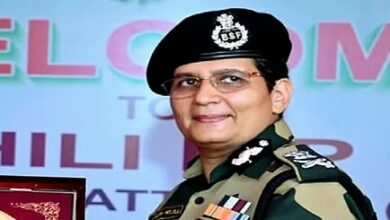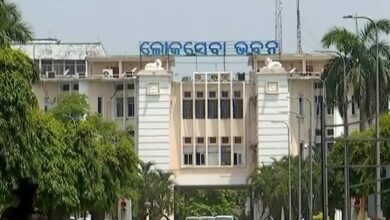Odisha Hosts 9th National Summit on Public Healthcare Innovations

Bhubaneswar: Odisha Chief Minister Mohan Charan Majhi reaffirmed the state’s commitment to building a healthier and more equitable future, in alignment with Prime Minister Narendra Modi’s vision, at the 9th National Summit on Good and Replicable Practices and Innovations in India’s Public Healthcare System held in Puri. Hosting the summit for the first time, Majhi expressed confidence that the blessings of Lord Jagannath would guide Odisha’s healthcare initiatives and accelerate progress toward national health goals.
A key highlight of Odisha’s healthcare journey is the integration of Ayushman Bharat Pradhan Mantri Jan Arogya Yojana (AB-PMJAY) with the state’s Gopabandhu Jana Arogya Yojana, enabling citizens to access quality healthcare at 29,000 empanelled government and private hospitals across India. This initiative will benefit migrant workers and further strengthen Odisha’s health and economic ecosystem. The Chief Minister also announced that 3,537 new health personnel have been appointed, with plans to fill 5,000 doctor vacancies soon. Additionally, eight new nursing colleges will be established to enhance the healthcare workforce, while two new medical colleges will be opened in Phulbani and Angul in the 2025-26 academic year. The government also plans to set up four new dental colleges in the near future. To strengthen the state’s healthcare infrastructure, 7,358 Urban and Rural PHC & Sub-Centres will be converted into Ayushman Arogya Mandirs, with 1,338 new buildings to be constructed next year. “Our vision for Sustha Odisha is inspired by the Sanskrit verse, ‘Sarve Bhavantu Sukhinah, Sarve Bhadrani Pashyantu’ – May all be happy, may all be free from illness,” said Majhi.

Union Health Minister Jagat Prakash Nadda emphasized that under Prime Minister Narendra Modi’s leadership, the Centre remains committed to revolutionizing healthcare through preventive, promotive, and comprehensive measures. He credited grassroots workers, including ASHA workers, for India’s progress in key health indicators such as declining Infant Mortality Rate (IMR), Maternal Mortality Rate (MMR), malaria, tuberculosis, and under-5 mortality rates. Nadda urged state health departments to collaborate closely with public representatives to maximize the impact of health policies, citing Puri MP Dr. Sambit Patra as an example of how doctors-turned-lawmakers can drive effective healthcare reforms. He also announced that Cancer Day Care Centers will be established in every district across the country to improve cancer care accessibility. Additionally, telemedicine services will be expanded to ensure healthcare reaches remote regions.
Odisha’s Health and Family Welfare Minister Mukesh Mahaling highlighted the state’s remarkable progress in healthcare, citing an increase in institutional deliveries, a declining Infant Mortality Rate (IMR) and Maternal Mortality Rate (MMR), and Odisha ranking first in full immunization coverage at 90.5%. He also emphasized the Odisha Cancer Care Programme, which provides chemotherapy at 32 district hospitals, ensuring better access to cancer treatment.
The summit saw participation from senior officials from the Centre, states, and Union Territories. Key speakers included Punya Salila Srivastava, Secretary, Health & Family Welfare (Centre), who stressed the need to build healthcare capacity at the grassroots level; Aradhana Patnaik, Additional Secretary & MD, National Health Mission, who highlighted efforts to improve drug and diagnostic services; and Aswathy S., Secretary, Health & Family Welfare, Odisha, who delivered the vote of thanks. The event concluded with a call for collaborative efforts to address India’s healthcare challenges and enhance public health systems across the country.





